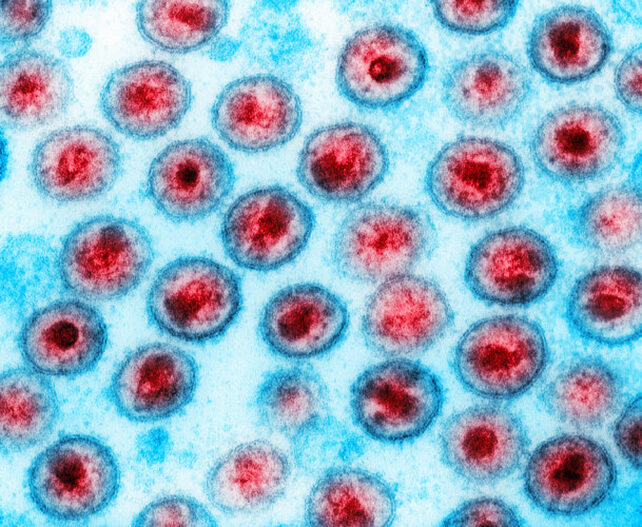The US Food and Drug Administration on Wednesday approved Gilead Sciences' twice-yearly injection to prevent HIV – a move the company hailed as a major breakthrough in the fight against the sexually transmitted virus.
Drugs to prevent HIV transmission, known as pre-exposure prophylaxis or PrEP, have existed for more than a decade. But because they typically require taking a daily pill, they have yet to make a significant dent in global infections.
"This is a historic day in the decades-long fight against HIV," Gilead chairman and chief executive Daniel O'Day said in a statement.
Lenacapavir, marketed under the brand name Yeztugo, has been shown to reduce the risk of HIV transmission by more than 99.9 percent in adults and adolescents – making it functionally akin to a powerful vaccine.
The company conducted two large clinical trials. The first, involving more than 2,000 women in sub-Saharan Africa, resulted in a 100 percent reduction in infections and demonstrated superiority over the daily oral pill Truvada.
In the second trial, involving over 2,000 men and gender-diverse individuals, only two infections were recorded – a 99.9 percent prevention rate, again surpassing Truvada.
Reported side effects included injection site reactions, headache, and nausea.
Results from both trials were published in The New England Journal of Medicine, and the journal Science named lenacapavir its 2024 "Breakthrough of the Year."

Despite the impressive results, optimism may be tempered by the drug's expected high cost.
An earlier long-acting HIV prevention shot – cabotegravir, which is injected every two months and was approved by the FDA in 2021 – costs tens of thousands of dollars per year and has yet to make a major global impact.
While Gilead hasn't disclosed a price for Yeztugo, analysts estimate the US launch cost could reach $25,000 per year. Lenacapavir's current list price for its previously approved use as a treatment for HIV is $39,000 annually, though that is expected to drop when used as a preventive.
Activists are urging Gilead to drastically cut the price to help end the HIV pandemic.
"Even high-income countries will not be able to afford widescale use of lenacapavir at prices above US $20,000 per year," said Andrew Hill of Liverpool University, who led a team of chemists and scientists that found it could be mass-produced and sold for as little as $25 per person per year.
"I congratulate Gilead and US partners for advancing this important innovation," added Winnie Byanyima, under-secretary-general of the United Nations. "Lenacapavir could be the tool we need to bring new infections under control – but only if it is priced affordably and made available to everyone who could benefit."
In October, Gilead signed agreements with six pharmaceutical companies to produce and distribute generic versions of the drug, pending regulatory approval, in 120 low- and middle-income countries.
Because it will take time for those countries to begin production, the company also announced a separate deal in December with the Global Fund – an international partnership established by the United Nations, alongside the US President's Emergency Plan for AIDS Relief (PEPFAR) and others – to purchase doses for two million people.
However, cuts to the PEPFAR program under President Donald Trump's administration have cast uncertainty over the future of that agreement.
© Agence France-Presse